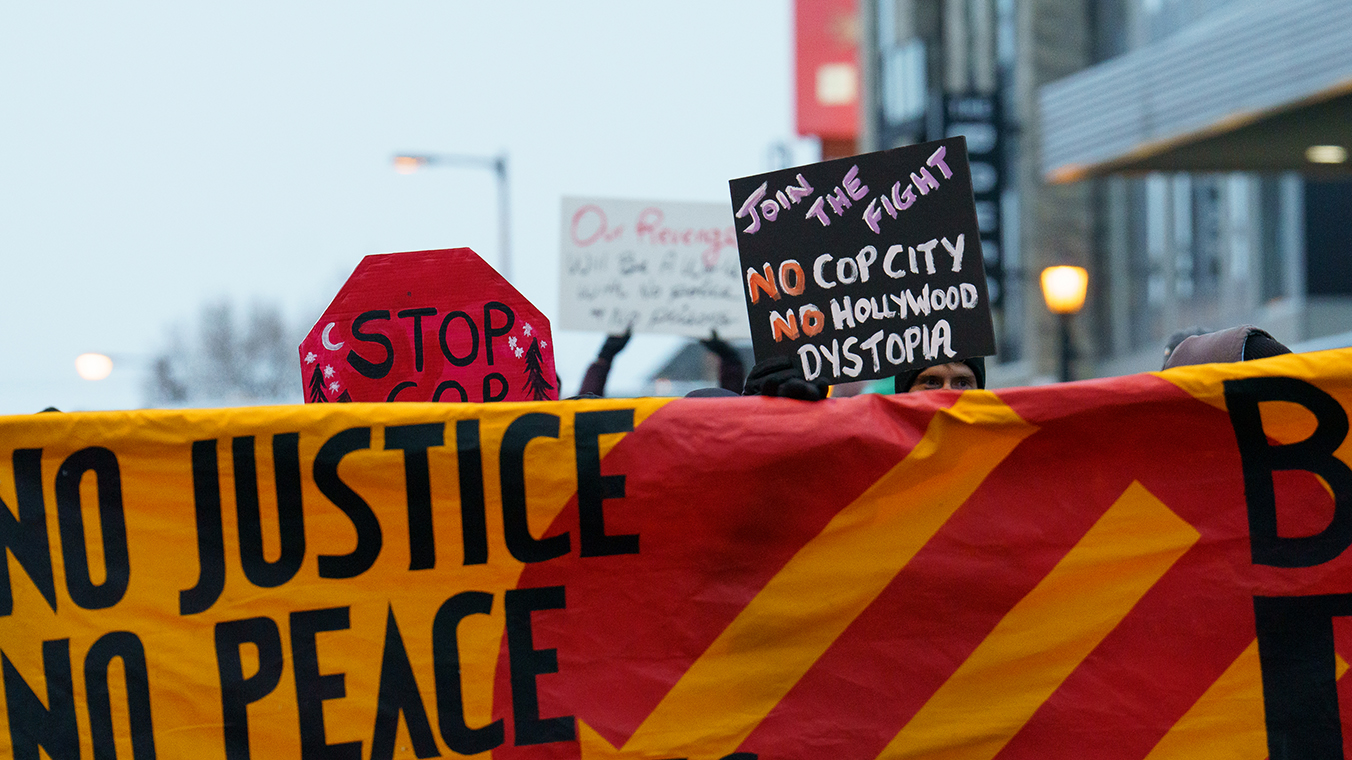On September 5, the Georgia Attorney General’s office announced that 61 activists opposing the construction of a multi-million dollar police training facility in Atlanta have been hit with racketeering charges under the Racketeer Influenced and Corrupt Organizations Act (RICO).
Atlanta residents have been fighting the proposed construction of a massive police training facility to be built on part of the region’s largest urban forests since 2021. Protesters allege that the training facility, dubbed “Cop City”, would hone the repressive tactics of the US police force and that it would contribute to increased repression against social movements, Black and Brown communities, and the working class as a whole. A mass movement has emerged in the city utilizing a diverse array of tactics including marches, forest occupations, direct action, and arts and culture.
The Atlanta Police Foundation and the state apparatus of Georgia have been attempting to subdue this movement every step of the way. The defendant list itself is a record of months of legal repression against the Stop Cop City movement. 42 out of the 61 defendants were previously charged with domestic terrorism. Defendants also include three activists who were charged with money laundering as a result of running a bail fund for arrested activists, a legal observer who was put in jail for monitoring protests, and three activists who were arrested for handing out flyers with the name of a police officer connected to the police killing of fellow protester Tortuguita.
“These charges are yet another flimsy and desperate attempt by the state government to crush the movement against police terror in Atlanta,” Stop Cop City activist Mariah Parker told Peoples Dispatch. “It shows that they have learned nothing in the course of this struggle: each time they have tried to snuff us out, we have emerged stronger and more organized. This will be no different.”
While the charges were filed last week, the date listed on all indictments is May 25, 2020. This was the day that unarmed Black man George Floyd was murdered in broad daylight by police officer Derek Chauvin, a killing that ignited a summer of the largest anti-police brutality protests in the United States to date. Prosecutors are tracing the actions of anti-Cop City protesters, who they label as “militant anarchists,” to the 2020 anti-racist protests—despite the fact that the Stop Cop City movement began in 2021.
As the Atlanta Community Press Collective reported, “In previous bond hearings for Stop Cop City defendants, prosecutors with the Georgia Attorney General’s Office have tried to link the George Floyd Uprisings to the Stop Cop City movement.”
“The Cop City RICO indictments allege the date when George Floyd was murdered by the police as the start of the ‘racketeering enterprise,’” wrote Atlanta-based activist and founder of Community Movement Builders Kamau Franklin. “The day a movement to abolish the police took on new life is the day for them a criminal enterprise was born.”
“This is a further attempt to criminalize a movement against police violence,” Franklin told Peoples Dispatch. “There is no basis in law to bring these charges. It is simply a scare tactic by the State and city against organizers.”
“It’s very clear that all levels of government in Georgia are committed to the same project that birthed the cop city proposal—absolutely stamping out any sort of radical movement against police brutality and this racist system,” Monica Johnson, Stop Cop City activist and anti-police brutality organizer told Peoples Dispatch. “This repression is part of the legacy of COINTELPRO, of trying to sever the ties between the community and organizers so people can’t envision a different type of life, one where our needs are met and we are not terrorized by the police.”





